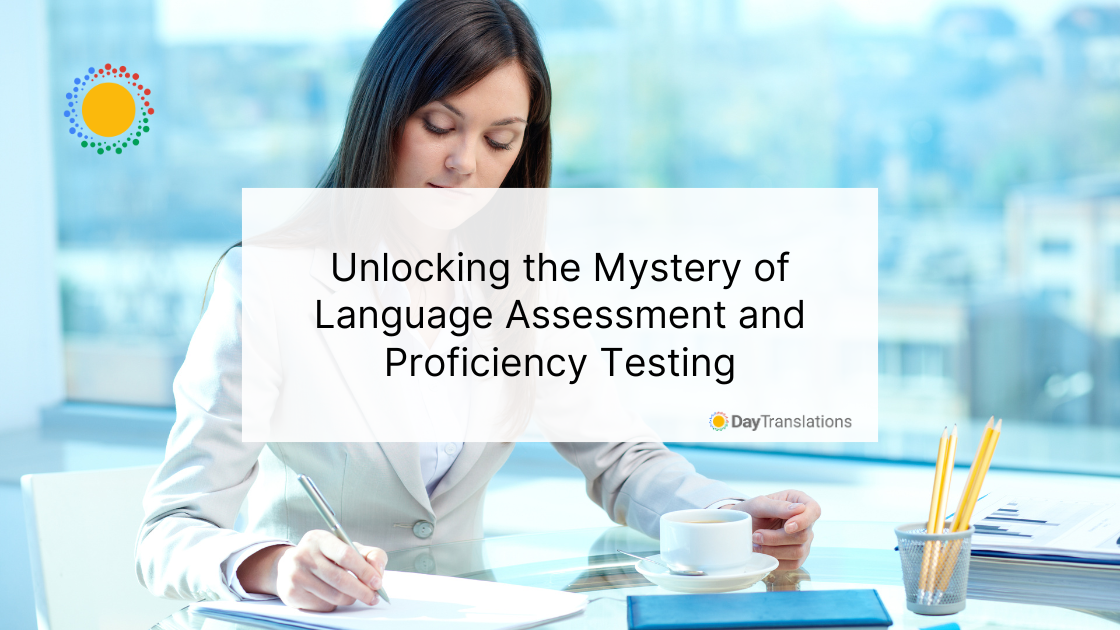Have you ever wondered how people can measure how well someone speaks a language? It’s like being a language detective, trying to uncover clues about how fluent someone really is. Welcome to the fascinating world of language assessment and proficiency testing, where languages meet detective work!
What is Language Assessment?
Imagine you’re in a world where everyone speaks different languages. How would you know if someone is really good at speaking a particular language? That’s where language assessment comes in. It’s like giving someone a language report card to see how well they can read, write, listen, and speak in a specific language.
Types of Language Assessment Options
- Oral Proficiency Interviews (OPIs): These are like friendly conversations where experts ask questions to see how well you can speak and understand the language.
- Written Tests: Just like your regular school tests, but in a different language! They check how well you can write and understand written texts.
- Listening Comprehension: Ever listened to a story and answered questions about it? That’s what this test does, but in another language.
- Reading Comprehension: Read a passage and answer questions to show how well you understand written material in that language.
The Magic of Proficiency Testing
Now, let’s talk about proficiency testing. It’s all about figuring out how skilled someone is in a language. Imagine you’re a wizard trying to unlock different levels of language mastery!
- Novice: Just starting out, like learning to say “hello” and “goodbye.”
- Intermediate: Getting better, like having short conversations and understanding simple texts.
- Advanced: Almost like a language superhero! You can have complex discussions and understand difficult texts.
- Native Speaker: You’re like a language wizard, speaking effortlessly and understanding everything like a pro.
How Do They Do It?
So, how do experts determine your language level? They use a combination of tests, interviews, and observations. It’s like putting together puzzle pieces to see the bigger picture of your language skills.
- Speaking and Listening: They listen to how you speak and understand spoken language. Can you follow conversations and express yourself clearly?
- Reading and Writing: Can you read different types of texts and write clearly? They’ll check your vocabulary, grammar, and comprehension skills.
Why It’s Important
Language assessment and proficiency testing are super important for many reasons:
- Education: Schools use these tests to see how well students are learning languages.
- Jobs: Some jobs require you to speak multiple languages, so employers use these tests to find the right candidates.
- Travel: Knowing your language level can help you communicate better if you’re traveling to a new country.
- Self-Improvement: It’s a great way to track your language progress and set goals for improvement.
Tips for Language Success
Want to ace your language tests? Here are some tips:
- Practice, Practice, Practice: The more you use a language, the better you’ll get.
- Listen and Repeat: Watch movies, listen to songs, and repeat what you hear to improve your pronunciation and understanding.
- Read and Write: Read books, articles, and write journals or stories in the language you’re learning.
- Speak with Native Speakers: Talking to people who speak the language fluently can boost your skills.
Final Thoughts
Language assessment and proficiency testing are like stepping stones on your language journey. They help you measure your progress, set goals, and become a confident communicator in any language you choose to learn. So, keep exploring, keep learning, and unlock the magic of languages!
Remember, it’s not just about speaking words; it’s about connecting with people and cultures through the power of language!












Sorry, the comment form is closed at this time.